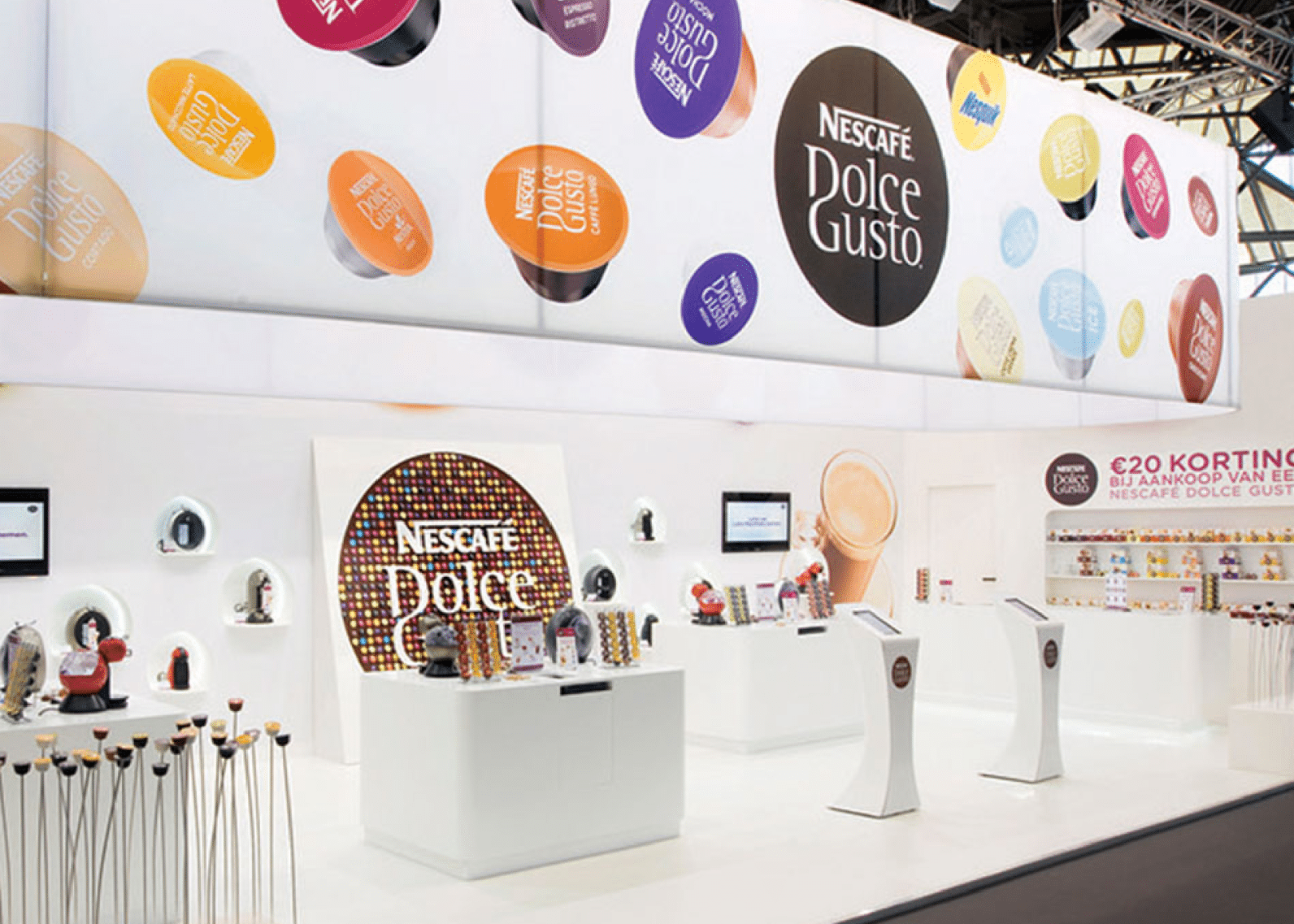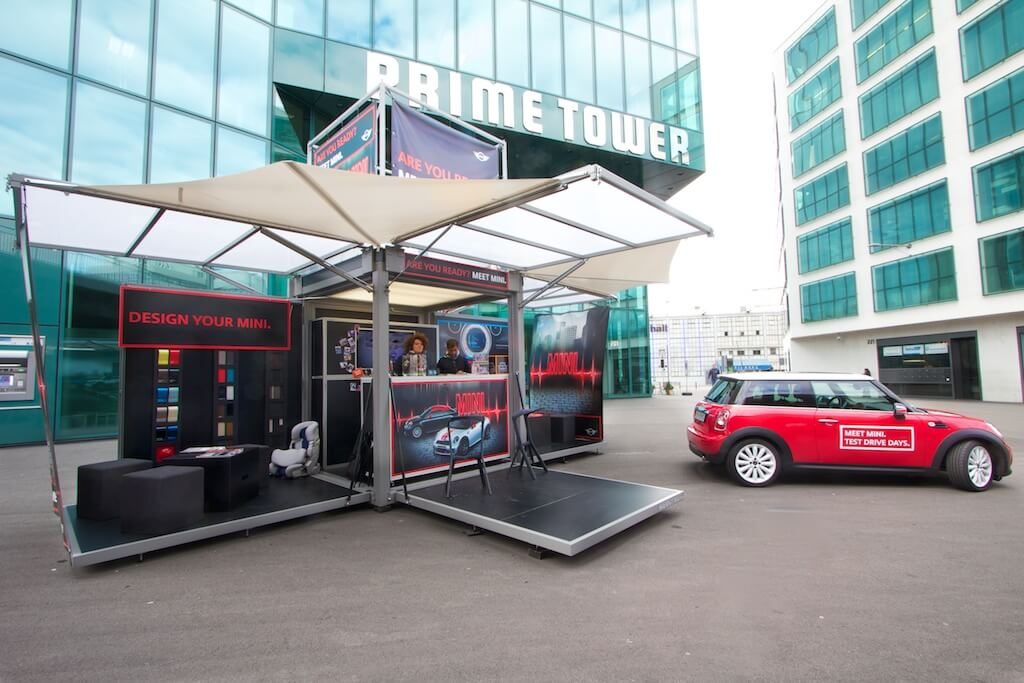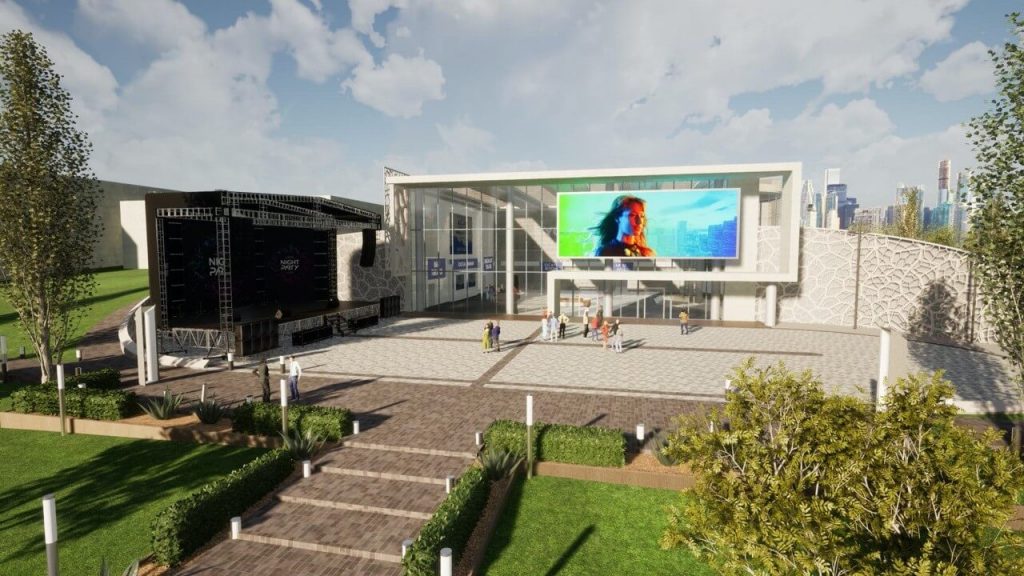Experiential events can be a highly effective way of amplifying a marketing campaign. Engaging, exciting, and experience-driven, they create genuine audience connections. And these connections can boost brand recognition and inspire lasting customer loyalty.
What Is an Experiential Event?
Conventional marketing is all about one-way interactions. In a traditional advertising campaign, information flows strictly one way: from the advertiser to the target audience. Meanwhile, the audience passively absorbs (or ignores!) that information. This works in the short term, but doesn’t often have long-term impact. That’s why traditional advertising relies on repetition. For consumers to keep paying attention, they need consistent exposure to branded messaging.
In this respect, experiential marketing is unique. It turns a one-way interaction into a two-way interaction. Instead of audiences passively absorbing marketing messages, they become active participants. More importantly, they choose to become involved in the experience. This keeps your audience engaged for longer. It also makes your marketing messages more impactful and long-lasting.
Experiential marketing is unique also because it’s immersive and engaging on multiple levels. Traditional forms of advertising engage only one or two senses. When an advertising campaign is experiential, you can engage all five senses. This makes it easier to evoke emotional responses in target audiences. That promotes the formation of brand-associated memories, boosting the impact of brand messaging.
These properties mean branded experiences are increasingly popular with many companies. An experiential event sparks a deeper level of engagement than traditional marketing is capable of. Think:
- A popup store
- A branded activation at a trade show
Experiential events can also happen in virtual spaces. These branded events can be even more impactful in the metaverse. Digital worlds aren’t just for video games anymore. Brands are creating virtual event experiences that reach millions of people and get huge amounts of media attention. There are digital concerts, product launches, virtual shopping trips, and so much more.
What Makes Experiential Events So Effective?
All events are experiential to a certain extent. But an event that’s designed to be experiential is more than a traditional corporate event. With this event strategy, audiences don’t watch and listen; they take part in the action. The experience is designed to engage the senses and evoke specific emotions.
What makes a successful branded experiential event? At the core of the event design, it’s what you want your audience to think and feel about your brand. When you know that, you can design an experience that evokes those thoughts and emotions. This marketing strategy brings a brand to life. It humanizes brands and lets them forge genuine emotional connections. And those connections drive consumer loyalty and long-term relationships.
Experiential Events Create Positive, Impactful Brand Associations
Modern audiences are much more sophisticated than they used to be. Many people view traditional forms of advertising with suspicion. They believe brands are just trying to sell products.
Experiential marketing changes the relationship between brand and consumer. With this kind of marketing strategy, the audience gets something in return. They don’t just view marketing messages; they take part in an experience that’s fun, engaging, and different. Where traditional advertising creates the illusion of emotion, experiential events evoke genuine emotion. As a result, the experience doesn’t feel manufactured. This is what makes an experiential event more impactful.
The result? An experiential event can:
- Create positive associations. Not just a boost to brand awareness, but also a more favorable view of the brand. The audience is more likely to remain loyal to the brand and to respond to future marketing messages.
- Humanize the brand. An experiential event is a dialog between the brand and its audience. This helps make the brand more relatable.
- Cultivate authenticity. When an experiential event aligns with the brand’s values, it feels authentic.
Adding experiential components to your event can certainly help boost event ROI. But these kinds of immersive event experiences offer more than immediate benefits. Experiential marketing means longevity. It helps you create real, lasting customer relationships that benefit your brand in the long term.

Experiential Events Have More Media Potential
Branded experiences are more impactful, and they have more media potential too. Thanks to social media, that potential is enormous. An exciting and immersive event isn’t only reported by professional media outlets. Participants in the event are likely to post about it on social media and tag the event brand too. As more people start talking about the event, it also has the potential to go viral online.
Get press coverage for an event
Experiential Events Create Organic Publicity
Experiential events create buzz more organically than a traditional marketing campaign. When people take part in a fun experience, they naturally want to tell others about it. They’ll be happy to use the branded hashtag too. These customer stories are organic, making them much more powerful than official media stories. Customer stories are social proof, one of the most powerful forms of advertising.
Experiential Events: Are There Any Downsides?
An immersive event is a great way to engage your audience and get them interacting with your brand. But while experiential strategies have big potential, there are some issues to be aware of when planning these events. Good news: Provided you understand what’s involved, you can avoid these issues and create an event that smoothly follows your vision.
Resource-Intensive
Experiential events are more engaging, exciting, and impactful compared to traditional marketing strategies. The flip side, of course, is that to create such an event can require a heftier investment of time and resources. It may mean more staff, special event technology, or extra time spent on event design. Experiential events often cost more to create and run, compared to traditional options.
The Potential for Problems
A core benefit of experiential events is that they are interactive. However, that interactivity also makes event planning more complex. These events typically involve putting together many different elements and people. There may be multiple venues, including both in-person and virtual elements. The more people and parts you add to an event, the more potential there is for something to go wrong. If your experience is tech-heavy, for instance, an electrical fault or power outage could throw a wrench in things.
To counter the potential for problems, it’s vital to consider what issues might arise. For instance:
- If your experiential event relies on people with specific training, have backups. That way, if someone can’t make it, you have another pro on deck, ready to go.
- If you’re relying on technical equipment, have backup tech and a generator standing by.
Experiential Events Enhance Your Audience Relationships
Building better customer relationships is all about making emotional connections with your audience. Immersive, memorable experiences help you make those connections. Want to raise brand awareness, launch a new product, or increase sales? Branded experiential events are an effective strategy to add to your marketing toolkit.
We have years of experience crafting fun, effective experiential events. Contact the team at ProGlobalEvents today to learn how an experiential activation can benefit your brand.









